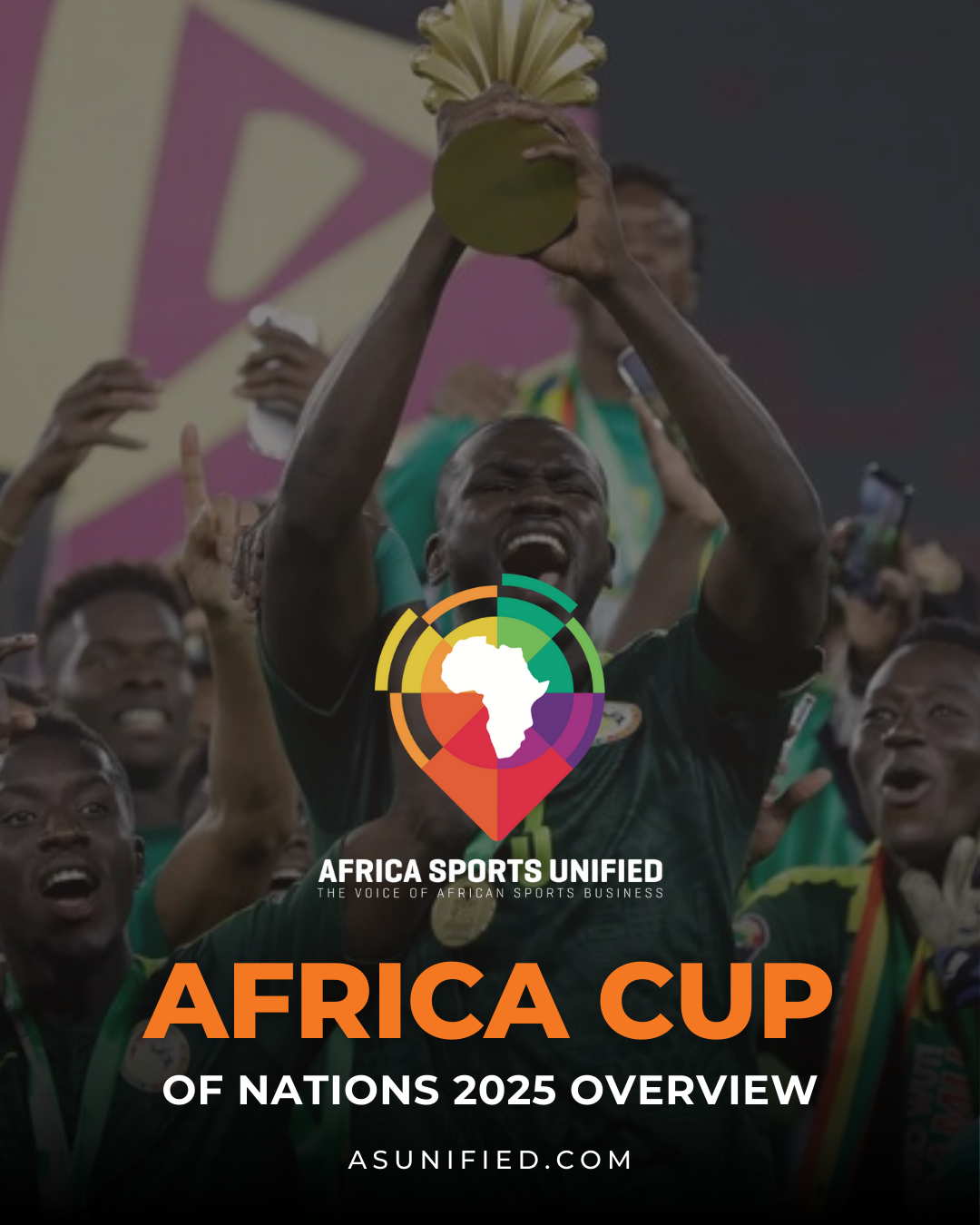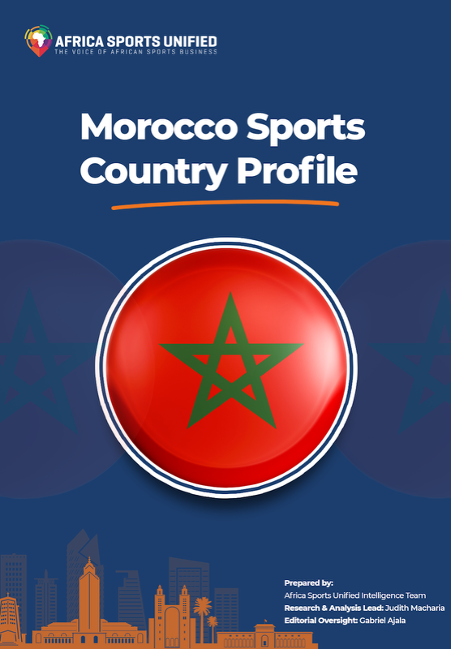The Role of Sports Tourism in Revitalising Africa’s Economy: Opportunities for Investment & Growth
Gabriel Ajala
September 16, 2024

This article discusses how tourism can leverage sports to further boost African economies by maximising the wonderful landscape and diversity of Africa.
One of the most promising areas for economic growth and development in Africa is sports tourism. Africa boasts a unique combination of landscapes, diverse cultures, and an increasing number of international sports events, making it a prime destination for sports tourists. For government bodies, investors, event organisers, and tourism stakeholders, the African sports market offers untapped opportunities to leverage sports tourism for both short-term revenue and long-term economic benefits.
COVID-19's Impact: A Temporary Setback
The COVID-19 pandemic heavily impacted Africa's sports tourism industry, in line with global trends. The United Nations World Tourism Organisation (UNWTO) reported that international tourist arrivals in Africa dropped by 75% in 2020 due to restrictions and event cancellations, resulting in significant financial losses across the continent.
Despite these setbacks, Africa's sports tourism market remains strong due to the growing demand for travel and sports experiences. Businesses looking to capitalise on this rebound have a prime opportunity to engage with the sports tourism market, which offers a blend of high visibility, community engagement, and revenue potential.
Sports Tourism: A High-Growth Opportunity
Globally, the sports tourism market was valued at $1.41 trillion in 2019, and despite the downturn due to the pandemic, it is expected to continue growing, reaching $1.8 trillion by 2030, according to Allied Market Research. Africa, with its increasing participation in global sports, is becoming a more prominent player within this sector.
South Africa, a well-established player in African sports tourism, generated R0.6 billion (approximately $31.6 million) from sports tourism during the first half of 2023, showcasing its economic potential. The Cape Town Cycle Tour and Comrades Marathon, for instance, attract tens of thousands of international visitors annually, contributing significantly to local economies.
Rwanda's Sports Tourism Playbook: Strategic Investments
Rwanda, a country making waves on the global stage, have signed multiple partnerships with sports clubs such as Arsenal Football Club & Paris Saint-Germain Football Club to promote its "Visit Rwanda" campaign. These moves generated over $160 million in media value and $445 million in tourism revenue in 2022. It has positioned Rwanda as a rising star in the international sports tourism space. The strategic focus on sports tourism is turning countries like Rwanda into hubs for international visitors, events, and sports enthusiasts, so much so that in 2023 it ranked as the 9th most visited country in Africa averaging 1,634,00 visitors annually.
In addition, Rwanda's strategic investment in events such as the annual Tour du Rwanda Cycling Race, FIBA Basketball Qualifications, UCI World Championships (2025) and the Basketball Africa League (BAL) playoffs has brought further attention to the nation.
The Rwandan government's investment in infrastructure, such as the state-of-the-art BK Arena, has transformed the country into a hub for international events and a model for other African nations looking to boost sports tourism. This blend of governmental support, strategic marketing, and infrastructure development positions Rwanda as a leader in Africa's sports tourism sector.
Other sporting events continue to show signs of the growing participation. For example, the 2023 Cape Town Marathon saw 30,000 participants. Taking into consideration the median price to enter of R450 ($25.4), this saw R13.5 million ($761,4000) generated from the marathon.
The resurgence of such events underscores the resilience of Africa's sports tourism industry. For investors, sports businesses, and governments, this represents an opportunity to capitalise on a growing market. Collaboration with local tourism boards, sports federations, and event organisers will be key to driving long-term growth.
Opportunities and Challenges for Investors
The growing prominence of sports tourism across Africa presents several investment opportunities:
- Infrastructure Development: Countries like Rwanda and South Africa have demonstrated that investments in stadiums, arenas, and tourism infrastructure can yield significant returns. Governments and private investors alike should consider collaborating on large-scale projects to unlock revenue from tourism-related activities.
- Adventure and Niche Sports: Africa's diverse landscapes offer opportunities to develop adventure sports tourism, including mountain biking, safari marathons, and water sports. Countries like Kenya and Tanzania, known for their natural beauty, can blend sport and nature to attract a global audience.
- Digital and Virtual Engagement: The rise of virtual sports experiences is an untapped area of growth. From live-streaming events to hosting virtual marathons, African countries can use digital platforms to reach wider audiences and increase international engagement.
- Visionary Leadership: Leadership plays a crucial role in unlocking the potential of sports tourism. Visionary leaders can position countries or regions as sports tourism hubs by setting strategic goals, securing partnerships with international sports organisations, and fostering innovation. Rwanda is an example where the government, led by President Paul Kagame, has championed the development of sports infrastructure and global partnerships, including the "Visit Rwanda"Âcampaign, which has placed the country on the global tourism map. For other nations, adopting a long-term vision that combines tourism with sports development will be key to maximising economic and social benefits.
- Alignment between Tourism & Sports Departments: For sports tourism to truly thrive, there needs to be strong alignment and cooperation between national tourism boards and sports ministries. An integrated approach ensures that tourism promotion efforts are closely aligned with sporting event planning and execution, creating a seamless experience for international visitors. Countries like South Africa have shown that when tourism and sports departments work in unison, the results can be transformational. By jointly developing tourism packages around major sporting events, and ensuring infrastructural readiness, nations can deliver high-quality experiences for both tourists and athletes, leading to repeat visits and positive word-of-mouth marketing.
Conclusion: Seizing the Sports Tourism Opportunity
For investors, governments, and stakeholders in the African tourisms market, sports tourism presents a compelling opportunity to drive both economic growth and community engagement. Countries like Rwanda and South Africa have shown that with the right investments in infrastructure, event hosting, and strategic marketing, the sports tourism sector can unlock significant value.
Now is the time for African nations to position themselves as premier sports tourism destinations. By leveraging Africa's rich sports culture, diverse landscapes, and growing portfolio of international events, the continent is poised to become a global leader in this exciting and dynamic industry.
This is a topic which we will touch upon at the 2024 ASU Connex Summit, our Flagship Executive Level event with key stakeholders from across the Pan-African sports market. To join us you can register here: https://www.eventbrite.co.uk/e/asu-connex-summit-2024-registration-941918071307
If you would like to explore in more detail how to align sports and tourism, then get in touch with us here: https://asunified.com/about-us
Related Posts




